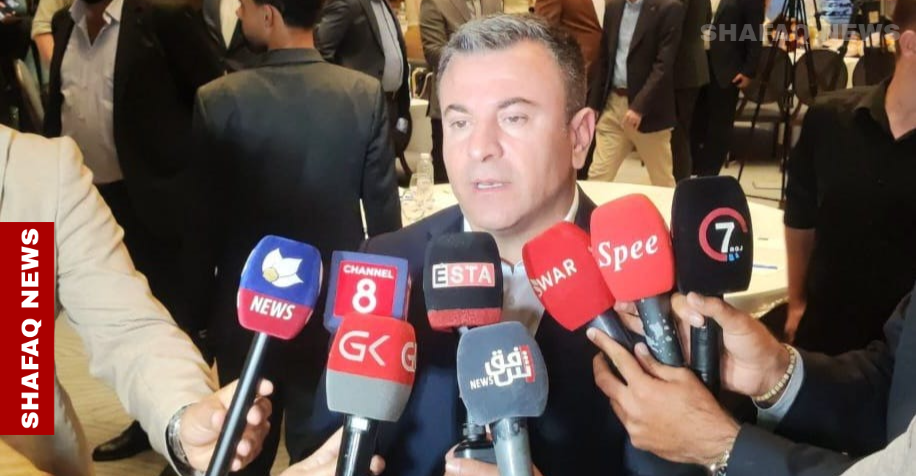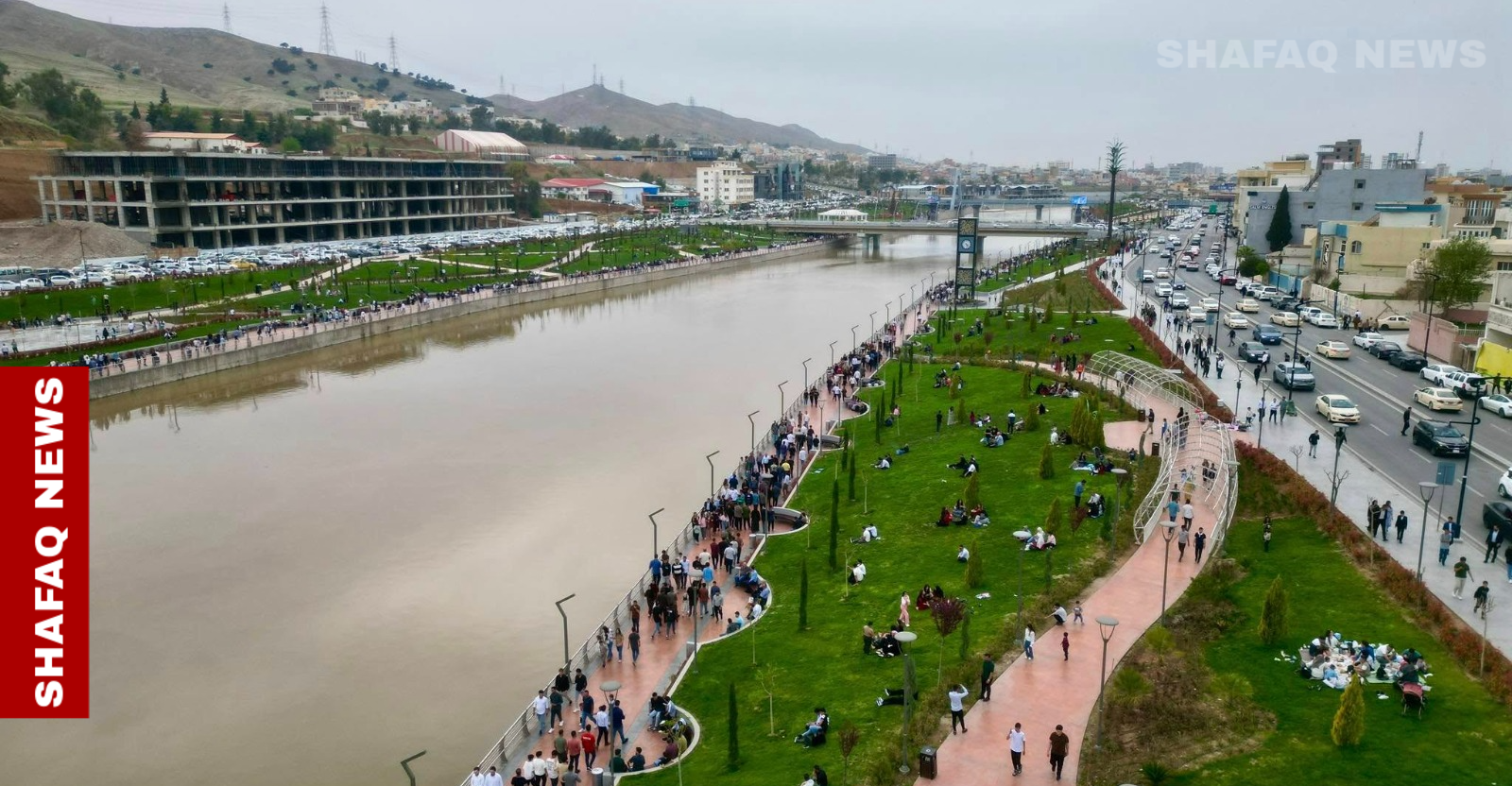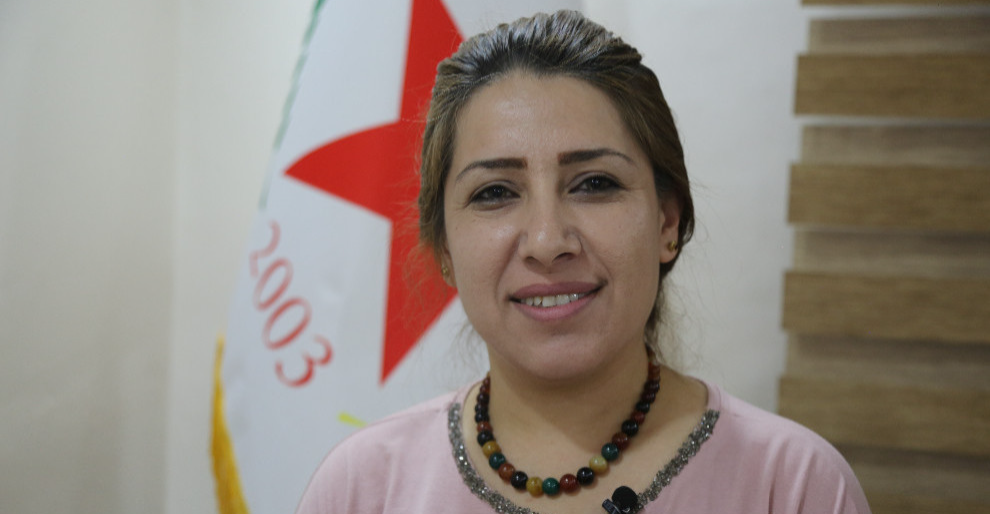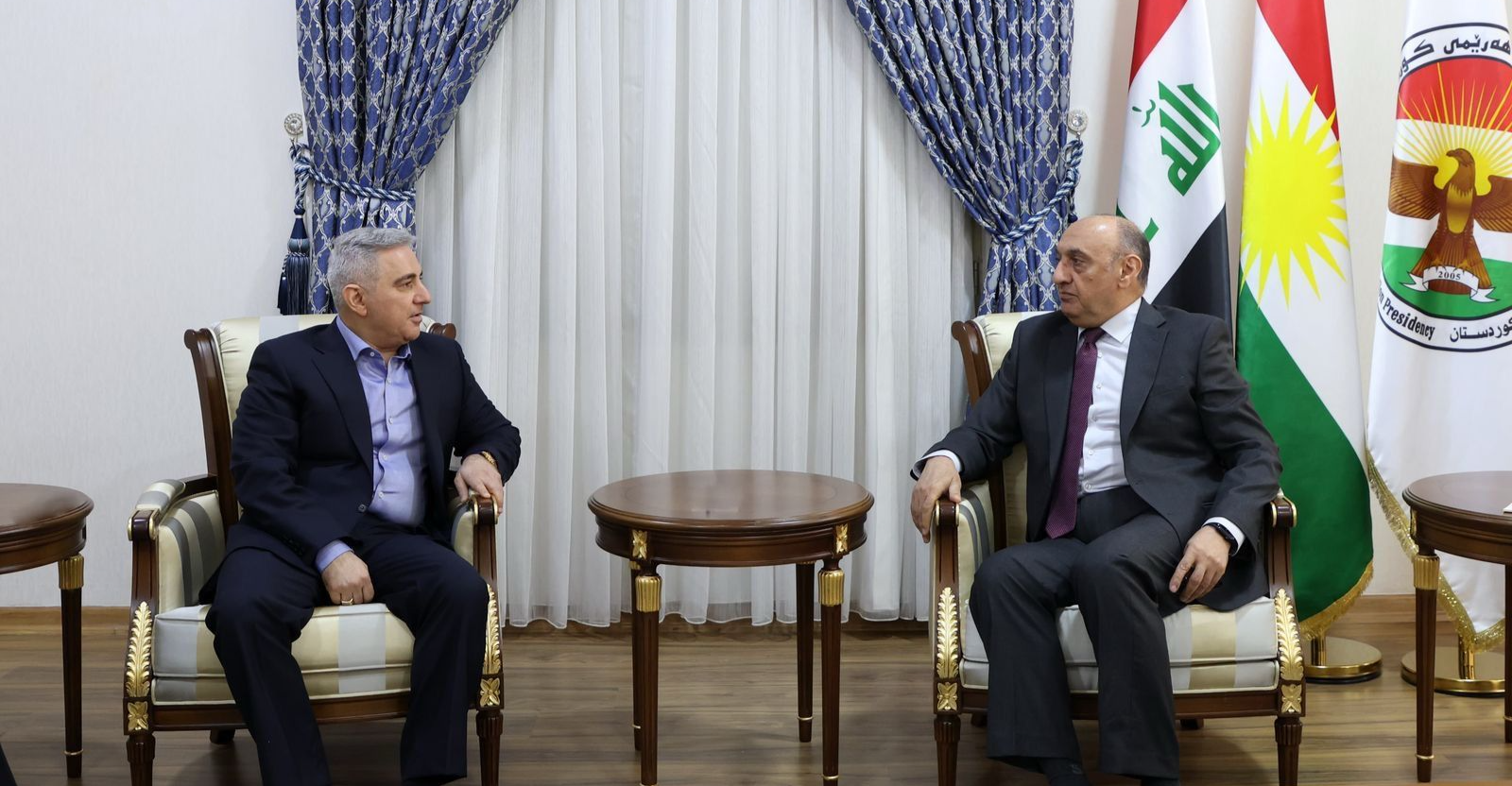Iraqi PM Al-Sudani's visit to Iran: What's behind the scenes?
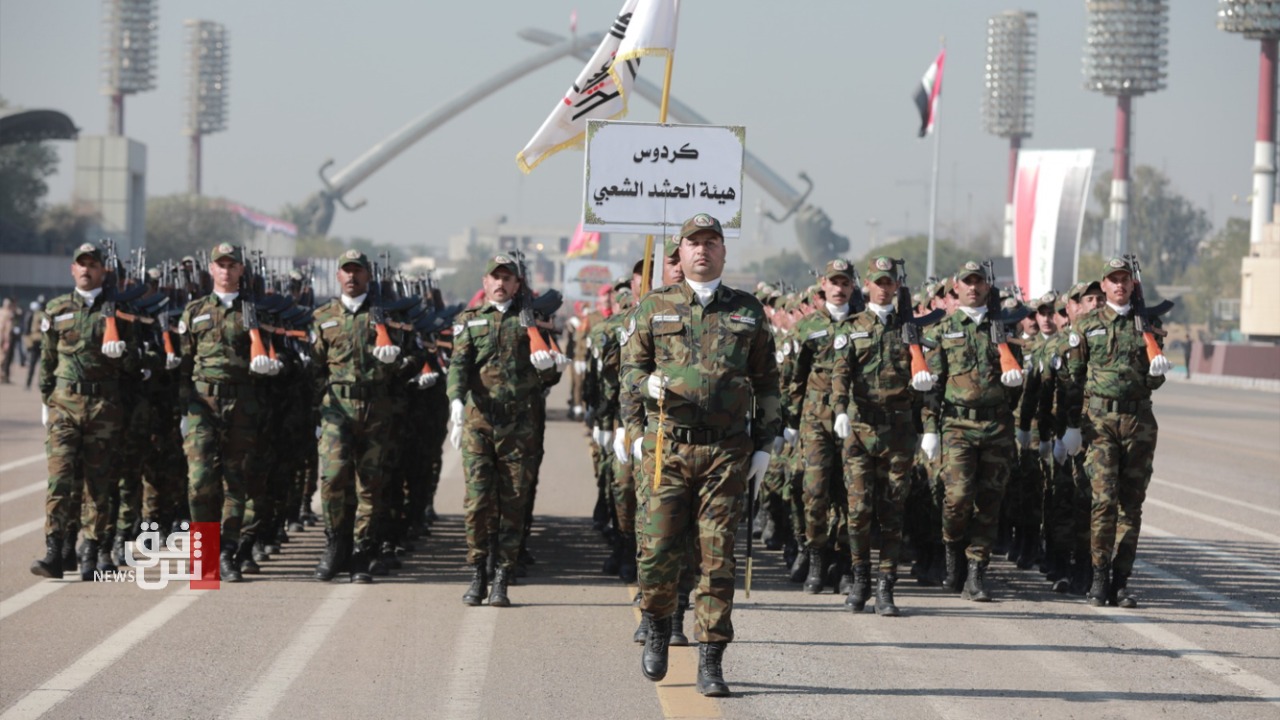
Shafaq News/ Iraqi Prime Minister Mohammed Shia al-Sudani'srecent visit to Tehran marks a “pivotal” moment in Iraq's relations with Iran.Amid growing regional and international tensions, particularly betweenWashington and Tehran, the visit, which addressed critical issues like Syria’sfuture and Iraq’s armed factions, has stirred varied reactions.
Details of the Visit
On January 8, 2024, Al-Sudani visited Tehran for a one-daytrip at the invitation of Iranian President Masoud Pezeshkian, holding meetingswith Iranian leaders to strengthen bilateral relations and discuss severalshared issues, including regional security.
At a joint press conference with Pezeshkian, Al-Sudanireiterated Iraq's respect for the Syrian people's will and support for"any political framework they choose," while urging a"comprehensive political solution for Syria." He underscoredBaghdad's commitment to “balanced” regional and international relations,announcing plans to host an international conference to promote stability.
President Pezeshkian, in turn, highlighted shared concernsover Syria's escalating situation, warning that "the potentialreactivation of terrorist cells remains a pressing concern for both Tehran andBaghdad." He stressed that “both countries are aligned in emphasizing theimportance of preserving Syria's territorial integrity and advocating for thewithdrawal of Israeli forces.”
In a separate meeting, Supreme Leader Ayatollah AliKhamenei underscored the Iraqi Popular Mobilization Forces (PMF) as "anessential pillar of Iraq's strength" and condemned the presence of USforces in Iraq, calling it "illegal and contrary to the interests of theIraqi people and government."
Shafaq News sources revealed that Al-Sudani and Khameneiagreed to protect the PMF from any pressure to disband it, stressing theimportance of “formal mechanisms to ensure weapons are under state control,thereby reinforcing the rule of law and achieving internal stability.”
A Strategic Step in Iraq-Iran Relations
Independent politician Aed Al-Hilali described Al-Sudani’svisit to Iran as “a move at a pivotal moment for the region.” Speaking toShafaq News Agency, he noted that the visit aimed to strengthen ties acrosspolitical, economic, and cultural dimensions. “This visit represents asignificant strategic step in enhancing bilateral relations between Iraq andIran,” he said, adding that Iraq seeks stronger cooperation with its neighborsto promote regional stability and serve the people.
During the visit, Al-Sudani engaged with senior Iranianofficials to explore avenues for closer collaboration. Al-Hilali stated thatdiscussions focused on bolstering trade, energy, and security ties whilefostering political coordination to support sustainable development, heemphasized, adding that the dialogue with the Iranian president extended tointernational and regional concerns, including developments in Syria and Gaza.
Bilateral relations between the two countries, Al-Hilalinoted, hold a vital role in fostering regional security and benefiting bothpeoples. He pointed out that the discussions underscored a collectivecommitment to facing regional conflicts, security crises, and terroristthreats. “The emphasis on solidarity between Iraq and Iran in addressing thesechallenges reflects a shared determination to bolster the region’s security andstability,” he remarked, underlining the importance of such cooperation amidthe “complex” international circumstances impacting the Middle East.
Unannounced Goals
The PM’s trip to Iran, though brief, carried"unannounced top-tier goals" that overshadowed the publicly statedobjectives, according to political science professor Essam Al-Faili.
Speaking to our agency, Al-Faili remarked, "Officialstatements typically focus on traditional themes, like strengtheningrelationships and addressing specific issues, but the underlying messages areoften far more significant."
Al-Faili noted that Al-Sudani’s trip conveyed "a clearmessage from Iraq to Iran about the nature of Iraqi factions, which remain acritical factor in Baghdad’s future relations with Washington.” He highlightedthe challenge these factions pose, particularly to the United States, asPresident-elect Donald Trump has pledged a revamped Middle East strategy uponformally assuming office.
Iraq’s armed factions are split into two primary groups.The first operates under the PMF, directly linked to the Prime Minister, whilethe second self-identifies as "resistance factions" that occasionallytarget US interests in Iraq and Israeli interests in the Palestinianterritories.
Referring to Trump’s recent communications with Al-Sudani,Al-Faili emphasized, "One of the security challenges for the US is dealingwith Iraqi armed factions that have attacked US forces not only in Iraq butalso in Syria and Jordan. These groups are seen as a direct threat to USnational security, prompting messages to Iraq, which in turn conveyed them toIran."
Our sources previously revealed that Trump’s message toAl-Sudani stressed “the need for Iraq to curb the proliferation of weapons heldby non-state actors, pressure Baghdad to limit the influence of Iranian-backedgroups operating within Iraq, and advocate for Iraq’s non-intervention inSyrian affairs while supporting the formation of a new Syrian government post-Assad.”
Iran’s perspective, however, reflects a different emphasis.Khamenei underscored the importance of the PMF as a “robust institution,”describing it as a "Shiite ideological force." Yet, Al-Faili pointedout that the fatwa issued by Iraq’s top Shiite cleric, Grand Ayatollah Alial-Sistani, was inclusive of all Iraqis, rather than sect-specific.
Khamenei’s remarks during the discussions extended toresistance forces in Yemen, Lebanon, and Gaza, but conspicuously avoidedmentioning Iraq’s resistance factions. This, Al-Faili explained, signals"a potential shift in Iranian strategy, reassessing the regional landscapeand seeking diplomatic resolutions with the US in the coming period, whiledistancing itself from any strike on its nuclear program.”
PMF: A Matter for Iraq Alone
In response to Khamenei's recent speech, Ahmed Al-Yasiri,head of the Arab Australian Center for Strategic Studies, told Shafaq News that"the speech reflects Khamenei's longstanding position on expellingAmerican forces, confronting Israel, and accusing Iran's adversaries of seekingto occupy the region, among other points." Al-Yasiri added, "Theissue of the PMF and its factions is an internal matter for Iraq. Iran cannotdictate a specific path for Iraq."
He further noted, "Iran is reeling from setbacks inSyria, creating internal unease. With regional influence shrinking and thepotential return of Trump, Iran faces increasing challenges. Iraq, as Iran'seconomic lifeline, remains crucial to Tehran’s regional strategy, which is whyIran seeks to preserve the current system."
Notably, a source told Shafaq News last week that Iran'sQuds Force Commander Esmail Qaani informed Al-Sudani that “Iran would notobject to decisions regarding the future of armed factions in Iraq.”
Qaani's statements came before Iraq's discussions onintegrating armed factions into the country's security forces, with preliminaryapproval granted for the Harakat Hezbollah al-Nujaba Movement. “Efforts toinclude additional factions into the security framework are also in progress,”according to our sources. “The integration process requires factions to complywith directives from the Commander-in-Chief of the Armed Forces (PMAl-Sudani).”
The integration efforts come amid increased internationalpressure. During a Dec. 13 visit to Baghdad, US Secretary of State AntonyBlinken reportedly urged Al-Sudani to take “strict measures” against armedfactions. A US official told CNN that the requests were “broad in scope,”highlighting growing American concerns about the factions’ influence.
Iraq Stands With Iran
Al-Sudani's journey to Tehran has drawn sharp attention,“particularly in light of the intensifying military and diplomatic strainsbetween the US and Iran, especially under Trump and the Iranian regime,”prominent Iraqi politician Mithal Al-Alusi told our agency.
Further emphasizing the visit’s ramifications, Al-Alusiremarked, "The PM's visit sends a dangerous signal to Israel, affirmingthat Iraq stands with Iran and supports its actions. Iraqi factions that targetedIsrael are backed by the government, even though official diplomatic statementsdeny and reject this."
He concluded with a warning, "The visit will havesignificant and dangerous consequences, making Iraq a target for both the USand Israel."


